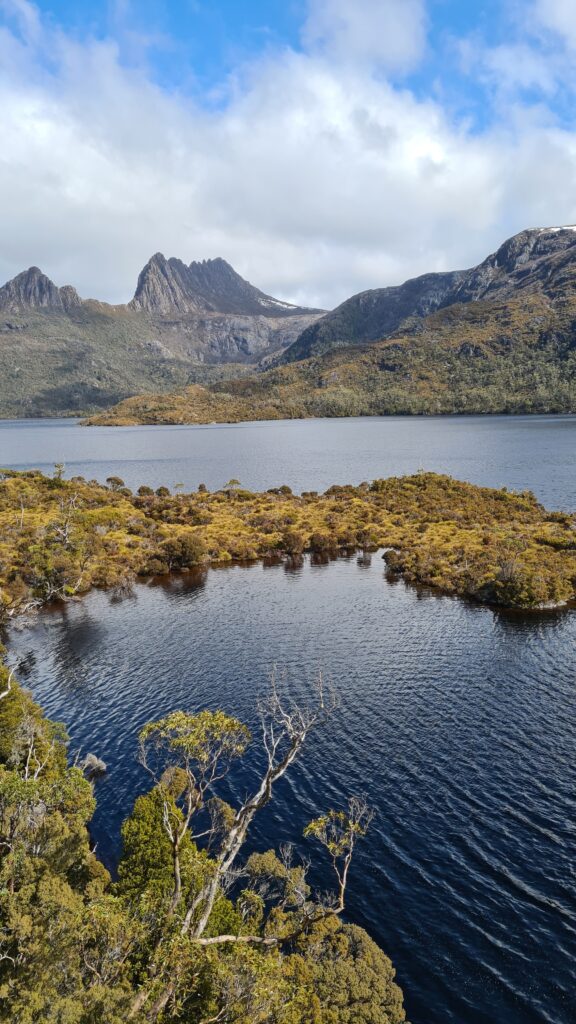By Claire Bookless, Managing Lawyer, lutruwita/Tasmania
In the past eight years, the Tasmanian Government has announced numerous reforms, reviews and new policies with the potential to strike at the heart of the state’s environmental and planning laws.
The government is pursuing policies that could fundamentally change our state, its environment and communities.
Among those policies are plans to increase the state’s population by more than 25% by 2050 and increase primary production five-fold by 2050. These two proposals alone are likely to have very serious negative consequences for nature and communities in lutruwita/Tasmania and should be scrutinised closely before they are locked in.
Government moves to centralise the planning system and reduce local government involvement in decision making would be backwards step, diminishing the already limited opportunities people have to influence planning decisions that will have profound and lasting impacts on their communities for generations.
Plans to open national parks, reserves and Crown land to private tourism development pose a serious threat to the ecological integrity of some of lutruwita/Tasmania’s most important ecosystems and landscapes.
And measures that curtail freedom of political speech and the right to protest are eroding basic freedoms and the fabric of our democracy.
It is not only the breadth and depth of these reforms that are concerning. The sheer volume of changes being considered so quickly and all at once is also problematic.
Public scrutiny of reforms is critical to ensure people’s concerns are considered and proposals are amended accordingly to optimise the benefit of any changes for the whole of society.
But community groups have finite resources to engage effectively in community consultation processes associated with these proposals.
In the past year alone, EDO has provided detailed submissions on 10 significant public consultations.
It’s not just the sheer volume of consultations that’s overwhelming, so is the uncoordinated and piecemeal approach the government is taking.

For example, look at what is happening in salmon farming regulation. Just this year, the Tasmanian Government separately invited public submissions on draft aquaculture standards; the review of the Living Marine Resources Management Act 1995; changes to the salmon farming regulator – the EPA – and its powers and the consultation paper for the 10-Year Salmon Plan.
All of these processes touch on overlapping issues, but they did not effectively talk to each other. Such lack of coordination is all the more concerning given the damning report by the Legislative Council on the parlous state of salmon farming regulation released in May.
Meanwhile, these major decisions are being made based on an outdated understanding of the state of the environment in Tasmania.
Tasmanians are still waiting for our environmental “health check”, as the government has not published a State of the Environment report since 2009, despite the legal requirement to produce these reports every five years.
Tasmania also has the worst rate of disclosure of information under Right to Information legislation of any Australian state or territory, which means getting a clear picture of water and air quality, land management and effectiveness of planning and environmental regulation can be exceedingly difficult.
We are effectively “flying blind” about how effective our environmental and planning laws are in protecting our air, water, land and biodiversity.
We can and must do better in seeking broad-based community engagement — not just with industry bodies with vested interests — on these critical questions about how we ensure a healthy environment for current and future generations.
To get the best outcome, the government must involve the community at a much earlier stage.
That includes giving communities more time and the resources to engage in these reform processes in a meaningful way.
There also needs to be far more coordination by different arms of government when they are seeking comment on overlapping or related reforms.
Given the environmental challenges we face, an overarching, integrated, and ecosystem-based environment management and planning framework for lutruwita/Tasmania is more important now than ever.
Using our expert environmental and planning legal knowledge, EDO will continue to tirelessly advocate for such a framework to protect the places we love.
We do so in the absence of any funding from the Tasmanian Government.





